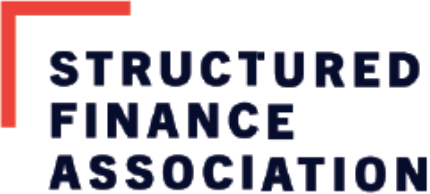Phase 3.5 Completed, Lookahead To Phase 4
Provided by Structured Finance Association
By: Leslie Sack & Ben Turner
On April 24, the president signed the Paycheck Protection Program and Healthcare Enhancement Act (often referred to as Phase 3.5 or CARES Act 1.5) after the House passed the bill by a margin of 388-5 on April 23 and the Senate passed the bill by unanimous consent on April 21. The $484 billion package provided funding for the Small Business Association’s Paycheck Protection Program (which had run out of funds), as well as for hospitals and COVID-19 testing.
Washington has already turned toward Phase 4 relief, which is shaping up to be more politically fraught than the previous packages. Majority Leader Mitch McConnell’s (R, KY) public comments last week seem to indicate a preference for Congress to wait before engaging in the next round of COVID-19 relief, putting him at odds with Speaker Nancy Pelosi (D, CA), who said on a caucus call last week that the House draft for Phase 4 was nearly complete. Leader McConnell also made comments suggesting struggling states should pursue bankruptcy rather than receive federal funding, adding a further partisan tension to what will inevitably be a difficult negotiation.
Publicly, Senate Republicans say they are operating under a timeline of waiting until both chambers return on May 4 to begin any next steps while House Democrats’ publicly stated goal is to have the package finished by May 4 and to vote soon thereafter. In addition to partisan differences, the latest round of funding for the PPP program ($310B) is expected to run out before May 4 (likely by the end of this week), adding another variable to the Phase 4 timeline.
We expect Speaker Pelosi and Minority Leader Chuck Schumer (D, NY) to prioritize funding for state and local governments in any Phase 4 negotiations given that municipalities were left out of last week’s relief package. Beyond that, we expect Democratic priorities to include: expanding unemployment insurance, a second round of stimulus checks, additional housing and rental assistance, funding the postal service, and funding for states to help them implement mail-in voting and other forms of election assistance.
While Leader McConnell may be reticent to reengage, Speaker Pelosi’s and Minority Leader Schumer’s leverage to force Phase 4 legislation may come from the dual pressures of 1) the exhausting of PPP funds (again) and 2) an Administration more willing to negotiate with Congressional Democrats than Senate Republicans.
The Administration may also be keen to address the economic issues surrounding recent disruptions to oil markets, as well as the larger programmatic issues involving the PPP program and transportation funding.
Congressional Republicans and Democrats may be on two different timelines as they contemplate another round of federal help. Despite that, we expect both lawmakers and the Administration to work on a Phase 4 economic relief effort as the COVID-19 pandemic continues to wreak havoc on individuals and businesses across the country.
SFA will continue to engage with Capitol Hill as conversations on Phase 4 develop and will keep our members informed of conversations around legislation action in Washington, D.C.

